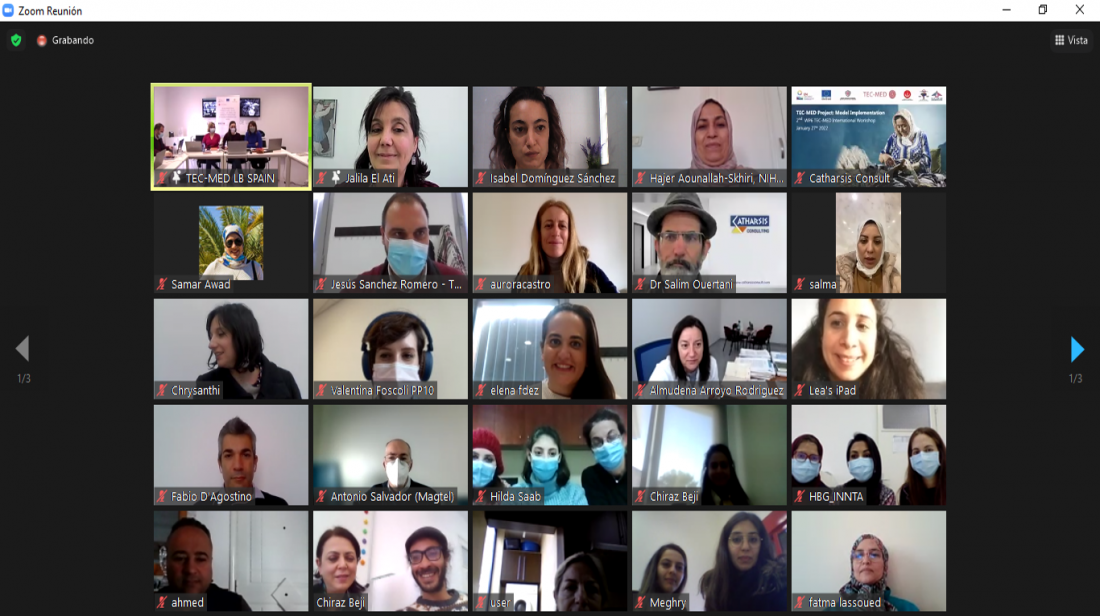The advances in the Implementation Model and the Social Capitalization Plan are shared at the “Third International Workshop” of the TEC-MED Project

This meeting, the “Third International Workshop. The implementation model and Social capitalization plan", has been held online, was organized by the Tunisian partner, and took place on January 27th, 2022. All partners and several stakeholders participated, with the aim of sharing the progress made in the implementation model and the social capitalization plan, creating a discussion around them.
The workshop was divided into two parts. In the first session, after the presentation of the workshop’s objectives, the partner pp10 of the project (Italy) was also introduced. They phenomenally presented the management and content of the TEC-MED training and care platforms, the implementation of the TEC-MED model (which aims to reach 4,700 people per country), and finally the social aspects of the capitalization plan. Questions were raised and doubts were discussed.
The second session consisted of five parallel working groups, where three main aspects were discussed by the different stakeholders: training and caring platforms, social capitalization aspects, and the implementation of the TEC-MED model. Each group raised the identified strong points, possible weaknesses, visions of the future, and doubts regarding these points, combining the visions from management, practice, or training. Finally, the conclusions were presented and the workshop closed.
As a whole, several points of debate were highlighted, including the skills of the training agents and the importance of their training, for which it was important that the resources available on the platform were accessible and with clear and easy-to-consult terminology; the opportunities and the digital gap regarding digital technology were analyzed, being key to make it friendly to the elderly, or the possibility of adapting the terminology according to the profile of the platform; In the interview with these elderly, the importance of the interview time, the key dimensions to be evaluated, the well-defined terms, and the algorithms that the platform offers when selecting the issues and interventions were highlighted; finally, looking to the future, the possibilities of a quality certificate supported by the model were discussed; as well as the need to continue developing new meetings and upcoming steps to continue advancing in the achievement of objectives.
This rich list of key points will be analyzed in depth to refine the implementation model and the social capitalization plan of the TEC-MED model to make it more accessible and visible for all involved actors.







